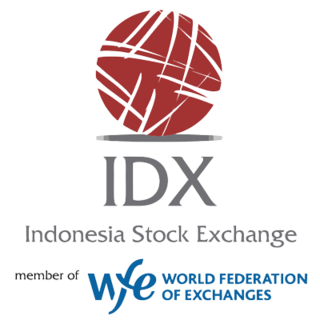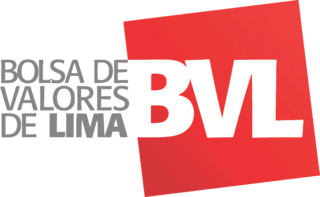
The Tel Aviv Stock Exchange, colloquially known as The Bursa, is the only public stock exchange in Israel and a public company itself, listed on its own exchange since August 1, 2019. It is regulated by the Securities Law (1968) and is under the direct supervision of the Israel Securities Authority (ISA).
The Nasdaq Iceland, formerly known as the Iceland Stock Exchange (XICE) (Icelandic: Kauphöll Íslands ), is a stock exchange located in Iceland. It was established in 1985 as a joint venture of several banks and brokerage firms on the initiative of the central bank. Trading began in 1986 in Icelandic government bonds, and trading in equities began in 1991. Equities trading increased rapidly thereafter. A wide variety of firms are currently listed on the exchange, including firms in retail, fishing, transportation, banks, insurance and numerous other areas. Because of the small size of the Icelandic economy and the low cost of public listing, many of the companies traded on the XICE are relatively small and are relatively illiquid.

The Shanghai Stock Exchange is a stock exchange based in the city of Shanghai, China. It is one of the three stock exchanges operating independently in mainland China, the others being the Beijing Stock Exchange and the Shenzhen Stock Exchange. The Shanghai Stock Exchange is the world's third largest stock market by market capitalization. It is also Asia's biggest stock exchange. Unlike the Hong Kong Stock Exchange, the Shanghai Stock Exchange is still not entirely open to foreign investors and often affected by the decisions of the central government, due to capital account controls exercised by the Chinese mainland authorities.

The Colombo Stock Exchange (CSE) is the main stock exchange in Sri Lanka that utilizes an electronic trading platform. The CSE headquarters have been located at the World Trade Center (Colombo) Towers in Colombo since 1995, and it has regional branches in Kandy, Jaffna, Negombo, Matara, Kurunegala, Anuradhapura and Ratnapura. The CSE trades 296 companies representing 20 business sectors, as of 25 January 2021, with a combined market capitalization of 3,699 billion Sri Lankan rupees.

Budapest Stock Exchange(BSE) (Hungarian: Budapesti Értéktőzsde, pronounced[ˈbudɒpɛʃtiˈeːrteːktøːʒdɛ] (BÉT)) is the third largest stock exchange in Central and Eastern Europe by market capitalization and liquidity. It is located at 55 Krisztina Boulevard, Budapest, Hungary, in the Buda Centre of the Hungarian National Bank Previously, from 1864, during the Austro-Hungarian Empire it was located in the Budapest Stock Exchange Palace building, until a large trading floor was necessary. The exchange is controlled by listed issuers, by Hungarian private investors and by the central bank. The BSE is member of the World Federation of Exchanges and the Federation of European Securities Exchanges.

Nedbank Group is a financial services group in South Africa offering wholesale and retail banking services as well as insurance, asset management, and wealth management. Nedbank Limited is a wholly owned subsidiary of Nedbank Group.

The Buenos Aires Stock Exchange is the organization responsible for the operation of Argentina's primary stock exchange located at Buenos Aires central business district. Founded in 1854, it is the successor to the Banco Mercantil, which was created in 1822 by Bernardino Rivadavia.
The Botswana Stock Exchange (BSE) is a stock exchange located in Gaborone, Botswana. The Botswana share market was established in 1989 and became the Botswana Stock Exchange in 1994. It is governed by the Botswana Stock Exchange Act.

The Casablanca Stock Exchange is a stock exchange in Casablanca, Morocco. The Casablanca Stock Exchange (CSE), which achieves one of the best performances in the region of the Middle East and North Africa (MENA), is Africa's third largest stock market after Johannesburg Stock Exchange and Nigerian Stock Exchange in Lagos. It was established in 1929 and currently has 19 members and 81 listed securities with a total market capitalisation of $71.1 billion in 2018.

The Borsa İstanbul is the sole exchange entity of Turkey combining the former Istanbul Stock Exchange (ISE), the Istanbul Gold Exchange and the Derivatives Exchange of Turkey under one umbrella. It was established as an incorporated company with a founding capital of ₺423,234,000 on April 3, 2013, and began to operate on April 5, 2013. Its slogan is worth investing.

The Tehran Stock Exchange (TSE) is Iran's largest stock exchange, which first opened in 1967. The TSE is based in Tehran. As of October 2024, 663 companies with a combined market capitalization of US$ 94 billion were listed on TSE. TSE, which is a founding member of the Federation of Euro-Asian Stock Exchanges, has been one of the world's best performing stock exchanges in the years 2002 through 2013. TSE is an emerging or "frontier" market.

Indonesia Stock Exchange (IDX) is a stock exchange based in Jakarta, Indonesia. It was previously known as the Jakarta Stock Exchange (JSX) before its name changed in 2007 after merging with the Surabaya Stock Exchange (SSX). In recent years, the Indonesian Stock Exchange has seen the fastest membership growth in Asia. As of October 2024, the Indonesia Stock Exchange had 938 listed companies, and total number of investors has already grown to 14.2 million. Indonesia Market Capitalization accounted for 45.2% of its nominal GDP in December 2020. Founded on 30 November 2007, it is ASEAN's largest market capitalization at US$881 billion as of 19 September 2024.

The Bahrain Bourse, also called the Bahrain Stock Exchange (BSE), is the stock exchange of Bahrain. As at 2017, 42 companies were listed on the exchange. The exchange operates from Sunday to Thursday. Three indices track the Bahrain Bourse (BHB): the Bahrain All Share Index, the Dow Jones Bahrain Index and the Estirad Index.
The Banja Luka Stock Exchange or BLSE is a stock exchange which operates in the city of Banja Luka in the Republika Srpska, Bosnia and Herzegovina. The Banja Luka Stock Exchange is a member of the Federation of Euro-Asian Stock Exchanges.

The Lima Stock Exchange is the stock exchange of Peru, located in the capital Lima. It has several indices. The S&P/BVL Peru General Index is a value-weighted index that tracks the performance of the largest and most frequently traded stocks on the Lima Exchange.

The Nepal Stock Exchange (NEPSE) is the only stock exchange of Nepal. As of August 2024, the market capitalization of the companies listed on NEPSE totaled रू476,590.9 crore (US$36 billion).
The Kazakhstan Stock Exchange is a stock exchange located in Almaty, Kazakhstan. The exchange was founded in 1993.
The S&P/ASX 300, or simply, ASX 300, is a stock market index of Australian stocks listed on the Australian Securities Exchange (ASX). The index is market-capitalisation weighted, meaning each company included is in proportion to the indexes total market value, and float-adjusted, meaning the index only considers shares available to public investors.
KMI 30 Index is a stock market index on the Pakistan Stock Exchange in Pakistan of thirty companies that have been screened for Islamic Shariah criteria. The index was introduced in 2009 and the base period for this Islamic index is 30 June 2008. It was created as a joint effort by the Karachi Stock Exchange and Al-Meezan Investment Bank.
The 2015-2016 Chinese stock market turbulence began with the popping of a stock market bubble on 12 June 2015 and ended in early February 2016. A third of the value of A-shares on the Shanghai Stock Exchange was lost within one month of the event. Major aftershocks occurred around 27 July and 24 August's "Black Monday". By 8–9 July 2015, the Shanghai stock market had fallen 30 percent over three weeks as 1,400 companies, or more than half listed, filed for a trading halt in an attempt to prevent further losses. Values of Chinese stock markets continued to drop despite efforts by the government to reduce the fall. After three stable weeks the Shanghai index fell again by 8.48 percent on 24 August, marking the largest fall since 2007.














